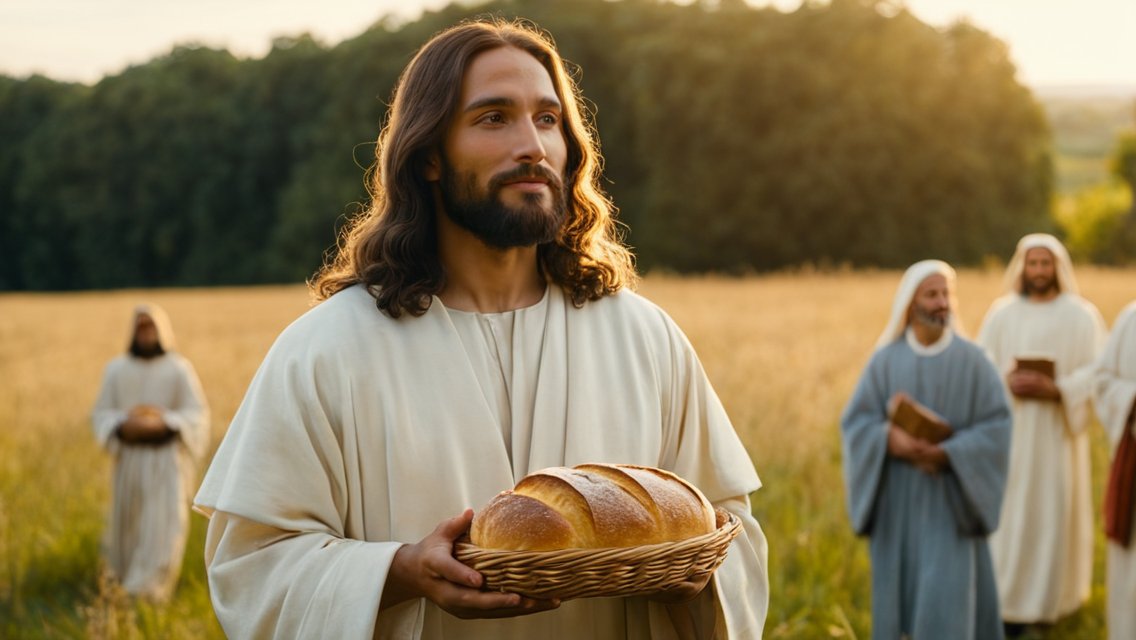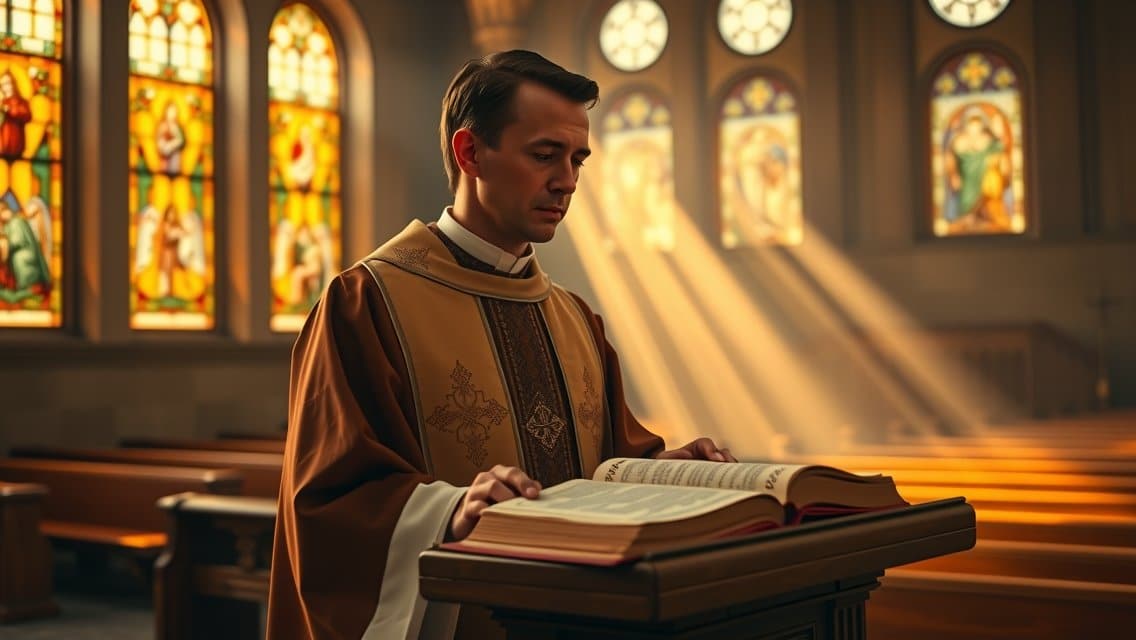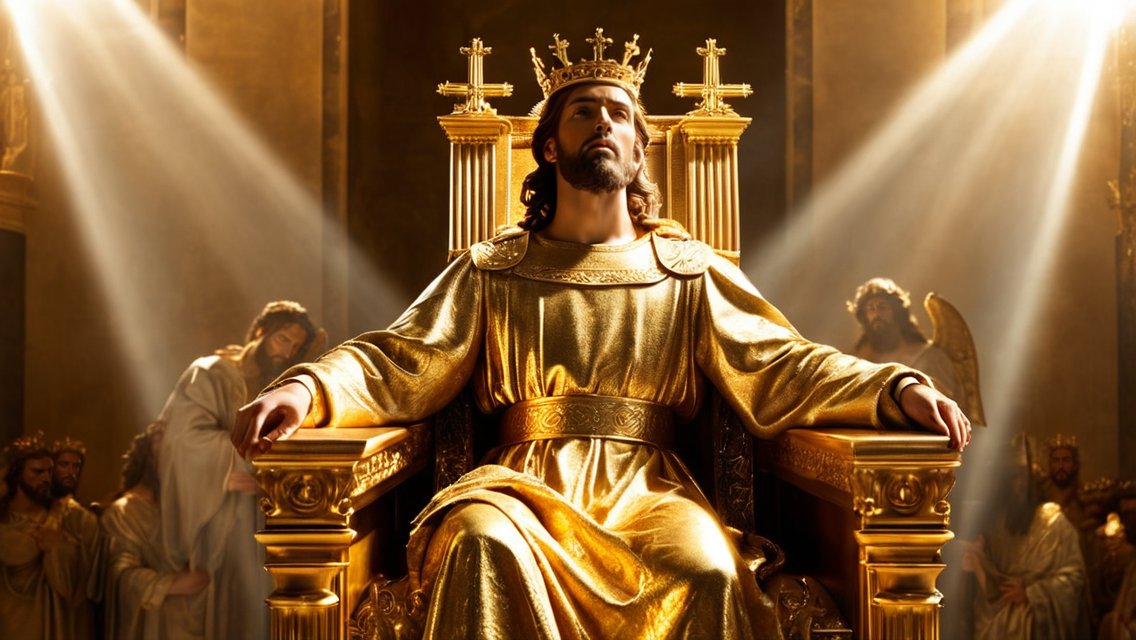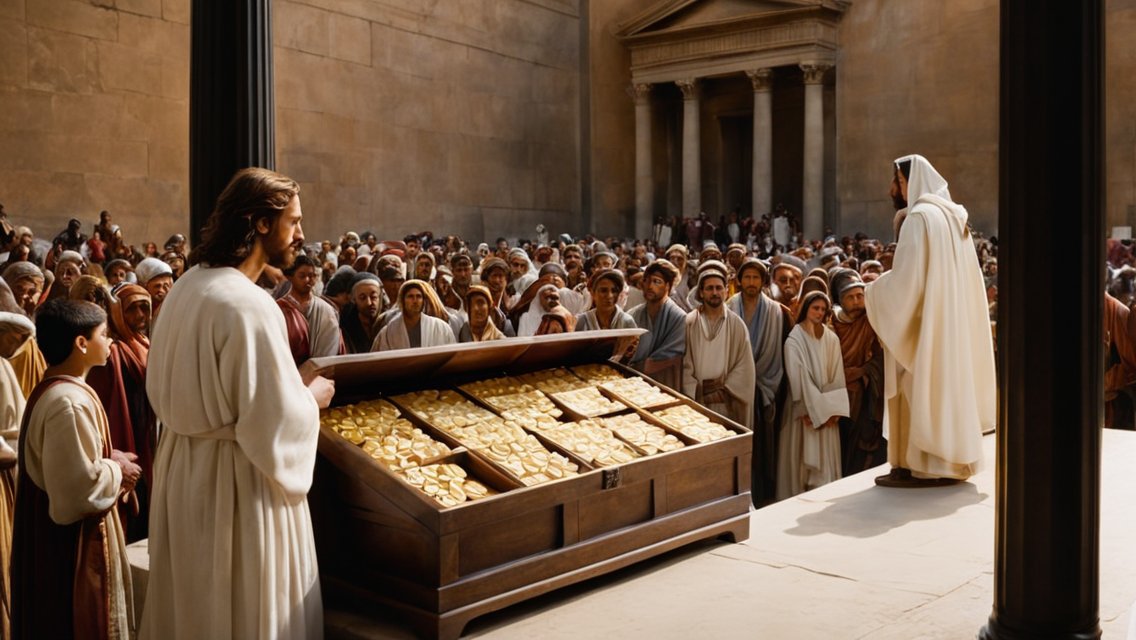Twentieth Sunday Homily of the Ordinary Time – Year B
Readings: Prov 9:1-6, Eph 5:15-20, Jn 6:51-58
The Wise Elder and the Feast of Wisdom
This story reflects the message of finding deeper meaning and nourishment through wisdom, love, and community, as highlighted in the homily for the Twentieth Sunday in Ordinary Time, Year B. Just as the Bread of Life offers spiritual sustenance, our connections with others and the purpose we find in serving and loving them bring true fulfillment. Click Here
1st Reading – Proverbs 9:1-6
1 Wisdom has built her house, she has set up her seven columns;
2 she has dressed her meat, mixed her wine, yes, she has spread her table.
3 She has sent out her maidens; she calls from the heights out over the city:
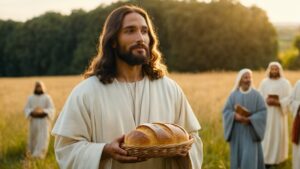
4 “Let whoever is simple turn in here; To the one who lacks understanding, she says,
5 Come, eat of my food, and drink of the wine I have mixed!
6 Forsake foolishness that you may live; advance in the way of understanding.”
Responsorial Psalm – Psalms 34:2-3, 4-5, 6-7
R. (9a) Taste and see the goodness of the Lord.
2 I will bless the LORD at all times;
his praise shall be ever in my mouth.
3 Let my soul glory in the LORD;
the lowly will hear me and be glad.
R. Taste and see the goodness of the Lord.
4 Glorify the LORD with me,
let us together extol his name.
5 I sought the LORD, and he answered me
and delivered me from all my fears.
R. Taste and see the goodness of the Lord.
6 Look to him that you may be radiant with joy,
and your faces may not blush with shame.
7 When the poor one called out, the LORD heard,
and from all his distress he saved him.
R. Taste and see the goodness of the Lord.
2nd Reading – Ephesians 5:15-20
Brothers and sisters:
15 Watch carefully how you live, not as foolish persons but as wise,
16 making the most of the opportunity, because the days are evil.
17 Therefore, do not continue in ignorance, but try to understand what is the will of the Lord.
18 And do not get drunk on wine, in which lies debauchery, but be filled with the Spirit,
19 addressing one another in psalms and hymns and spiritual songs, singing and playing to the Lord in your hearts,
20 giving thanks always and for everything in the name of our Lord Jesus Christ to God the Father.
Alleluia – John 6:56
R. Alleluia, alleluia.
56 Whoever eats my flesh and drinks my blood
remains in me and I in him, says the Lord.
R. Alleluia, alleluia.
Gospel – John 6:51-58
Jesus said to the crowds:
51 “I am the living bread that came down from heaven; whoever eats this bread will live forever; and the bread that I will give is my flesh for the life of the world.”
52 The Jews quarreled among themselves, saying, “How can this man give us his flesh to eat?”
53 Jesus said to them, “Amen, amen, I say to you, unless you eat the flesh of the Son of Man and drink his blood, you do not have life within you.
54 Whoever eats my flesh and drinks my blood has eternal life, and I will raise him on the last day.
55 For my flesh is true food, and my blood is true drink.
56 Whoever eats my flesh and drinks my blood remains in me and I in him.
57 Just as the living Father sent me and I have life because of the Father, so also the one who feeds on me will have life because of me.
58 This is the bread that came down from heaven. Unlike your ancestors who ate and still died, whoever eats this bread will live forever.”
Homily
Alive: Eating Flesh, Drinking Blood
“My flesh is real food and my blood is real drink” (In)
Piers .Paul Read’s bestseller “Alive: The Story of the Andes Survivors” tells the true story of Uruguayan rugby players who chartered an airplane to fly from Uruguay to Chile to compete in a tournament. Flying out on October 12, 1972, their airplane crashed over the snowcapped Andes Mountains. Out of forty passengers, only a handful survived. Lost in the snowy Andes for two months, when all food supplies were exhausted, the weaker players sensed that death was near. Thus, they begged their companions to eat their flesh after they were dead. Surviving on the flesh of their friends, the few who remained alive tearfully narrated how their friends wanted them to survive by consuming their flesh.
Jesus’ words, “one who eats my flesh and drinks my blood lives forever,” are not easy to understand in Indian contexts wherein ‘eating flesh’ is often condemned. How does one explain to one’s children and grandchildren what Holy Communion is? How does one respond to an agnostic who queries,’ “Do you Catholics really eat Jesus’ flesh and blood?
John’s gospel was written at a time when the early Christian community was already habitually celebrating the ‘Lord’s Supper’. The earliest ‘breaking of the bread’ liturgies had a strong focus on meal, fellowship and sharing. However, by stressing the “eat my flesh” and “drink my blood” invitation, evangelist John stresses the ‘sacrifice’ aspect since every Eucharist entails a sacramental eating and drinking with sacrificial overtones of flesh and blood.
It’s not uncommon to see communities sacrificing a bird or animal as a sign of life, and then celebrating this new life with a community meal. Among the tribes of Chotanagpur, for instance, at the annual Karam, Sohrai and Maghe festivals, fowls and. goats are killed and all the villagers feast on the meat together. In the Sudalai Madam cult of Tamil Nadu’s Tirunelveli District, the samiyati (priest) sacrifices cocks and goats, drinks their blood and sprinkles blood on devotees. Flesh and blood signify sacrifice – the life of a victim offered so that the whole community obtains Life.
Christian pietism*has often grossly exaggerated the ‘real presence’ of Christ by focusing on the ‘materiality’ of the Mass rather than on meaning and mission. Gregory the Great preached, “Christ’s blood is no longer shed at the hands of the unbelievers but now in the mouths of believers!” And, haven’t our grannies warned us that if we bite the Host blood will flow out from our mouths? Such exaggerations are not helpful to foster Eucharistic devotion and must be denounced.
The real significance of eating Jesus’ flesh and blood must be gauged from the perspective of God’s Self-Gift. God is always Giver. The first reading mentions the heavenly banquet with God (symbolized as ‘Wisdom’) inviting all peoples: “Come and eat my bread, drink the wine I have prepared!”
Jesus was God’s Wisdom, incarnate, who invited all peoples-especially the so-called ‘sinners’, tax collectors, harlots and hungry-to eat with him. But, on the one hand, while these meals created ‘communion’ and brought healing, on the other, they also caused conflict and begot hostility from those who would not share their bread and their life with others. This latter group would crucify Jesus for his words and works
At every Eucharist Jesus is, quite literally, The Host. We do not eat his flesh as we would eat a beefsteak but we enter into ‘communion’ with him. Teilhard de Chardin wrote, “Beneath the stillness of that piece of bread, i see a devouring power which, far from being consumed by me, consumes me.”
Jesus’ table-fellowship reminds us of our obligation to work for justice and to ‘be hosts’, generous givers, ourselves. The Uruguayan rugby players offered their flesh to friends after death so that they could stay alive. Jesus challenges us to be flesh-and-blood Christians before death so that everything, everyone, everywhere may be fully ‘Alive’.
